Obsessive-Compulsive Disorder
& Related Disorders
At the OCD and Anxiety Treatment Center of Houston, treatment is available for all types of OCD. These include fears of contamination, obsessions involving fear of harming, fear of inappropriate sexual behavior, and fears of violating religious or moral beliefs. Evidence based CBT treatments are used, primarily focusing on Exposure and Response Prevention (ERP) techniques, as well as Acceptance and Commitment Therapy (ACT) techniques as needed.
OCD
Characterized by fears of contamination with dirt or germs, fears of harming and intrusive distressing thoughts. Compulsive behavior involves rituals or avoidance:
- Excessive hand washing, cleaning
- Avoiding touching things, (e.g., covering hands with sleeves to touch doorknobs)
- Checking (e.g., checking stoves, light switches, or door locks; checking the road or car due to “hit and run” OCD)
- Counting, repeating (e.g., having to repeat behavior 4 times or multiples of 4)
- Ordering – arranging things, or having to create symmetrical a arrangements, having to do things that create even feelings on left and ride sides
- Compulsive telling or confessing
- Checking for reassurance with family members, doctors, or on websites
PRIMARILY OBSESSIONAL OCD
Characterized by disturbing, inappropriate or horrific intrusive thoughts or images:
- Relationship OCD: Fear that one is in the wrong relationship, in an otherwise good relationship, leading to checking for evidence to confirm one’s doubts
- Aggressive thoughts: Thoughts of harming self or others, e.g., thoughts of stabbing loved one, when one has no desire to do so
- Sexual thoughts: Fears of being gay, or fears of being straight, if one is gay; fears of molesting children, etc.
- Scrupulosity, i.e., religious or moral obsessions: Fears of doing something bad or wrong, or fears of blaspheming God, or fears of being unfaithful, with compulsions to confess minor behavior (among Catholics), excessive praying, checking with clergy for reassurance, etc.
- Indecisiveness: Fear of making the wrong decision, leading to reviewing all options, and avoiding making decisions
- Sensorimotor OCD: Preoccupation with bodily sensations, e.g., blinking, breathing, heart rate
POSTPARTUM OCD
May involve horrific intrusive thoughts or images of harming the baby, leading to fear of being alone with baby or fear of bathing baby, or may involve increased contamination fears.
OCD DUE TO PANDAS
(Pediatric Autoimmune Neuropsychiatric Disorders Associated with Streptococcal Infections): Onset or exacerbation of OCD due to having a strep infection.
TOURETTIC OCD
Needing to repeatedly do physical behaviors (swallowing, sniffing, turning head, etc.,) in a way that brings about “just right” feeling.
Obsessive-Compulsive Personality Disorder
Behavior pattern characterized by having to do things in a very specific, orderly, often rigid way, in order to achieve the “just right” feeling, but also in a way that is pleasing to the individual and sometimes rewarded by others – there is often no desire to change behavior unless family member insists.
HYPOCHONDRIASIS AND HEALTH ANXIETY
Fear that a minor symptom is indicative of a deadly disease (HIV, cancer, etc.) leading to excessive checking for reassurance with family members, doctors, or medical websites.
BODY FOCUSED REPETITIVE BEHAVIORS (BFRB’S):
- Trichotillomania (Hair Pulling)
- Skin Picking
- Nail Biting
- Mouth or lip chewing, picking, etc.
Treatment involves CBT, including Habit Reversal Training, Relaxation Training, and the use of strategies, e.g., use of barriers or incompatible behaviors.
Contact Me
Ask a question or book a virtual appointment below.
For emergencies call 911 or visit your nearest hospital.


